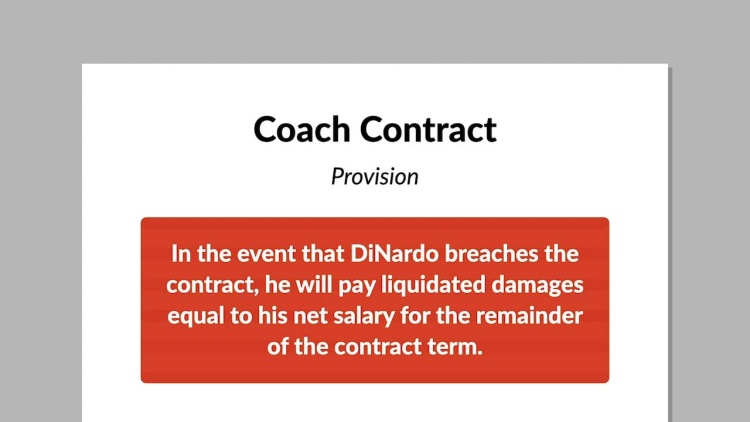Vanderbilt University v. DiNardo
United States Court of Appeals for the Sixth Circuit
174 F.3d 751 (1999)

- Written by Sara Rhee, JD
Facts
On December 3, 1990, Vanderbilt University (Vanderbilt) (plaintiff) hired Gerry DiNardo (defendant) as its head football coach for a period of five years. The employment contract stated that the five-year period was of essence to the contract and essential to the stability of Vanderbilt’s football program. Thus, the contract provided that if DiNardo resigned from his position during the contract period and began employment for another institution, he would pay Vanderbilt liquidated damages equal to his net salary for the time remaining in his contract. Prior to the expiration of the five-year period, the parties signed an addendum extending the term of the contract by two years. On December 12, 1994, DiNardo decided to accept a coaching position at Louisiana State University. Vanderbilt demanded that DiNardo pay liquidated damages for the one remaining year under the original contract and two remaining years under the addendum. DiNardo did not pay this amount. Vanderbilt sued DiNardo for breach of contract. Both parties moved for summary judgment. The district court found that the liquidated-damages provision and the addendum were enforceable and entered judgment in favor of Vanderbilt. DiNardo appealed.
Rule of Law
Issue
Holding and Reasoning (Gibson, J.)
Concurrence/Dissent (Nelson, J.)
What to do next…
Here's why 905,000 law students have relied on our case briefs:
- Written by law professors and practitioners, not other law students. 47,100 briefs, keyed to 995 casebooks. Top-notch customer support.
- The right amount of information, includes the facts, issues, rule of law, holding and reasoning, and any concurrences and dissents.
- Access in your classes, works on your mobile and tablet. Massive library of related video lessons and high quality multiple-choice questions.
- Easy to use, uniform format for every case brief. Written in plain English, not in legalese. Our briefs summarize and simplify; they don’t just repeat the court’s language.





